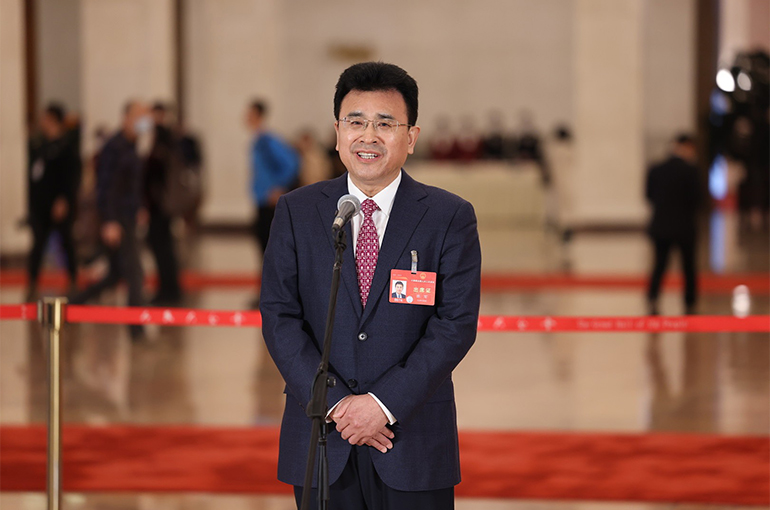 Solid-State EV Batteries Will Soon Have 1,000-Km Range Thanks to New Breakthroughs, Scholar Says
Solid-State EV Batteries Will Soon Have 1,000-Km Range Thanks to New Breakthroughs, Scholar Says(Yicai) March 8 -- In the next one to two years, there will be a technological breakthrough in solid-state batteries and electric vehicles will be using 600 watt-hours per kilogram batteries that allow them to run more than 1,000 kilometers on a single charge, according to the vice president of Tianjin's Nankai University.
“My team at Nankai University has developed a new 400 Wh/kg solid-state battery, which is 30 percent more energy-dense than the most advanced 300 Wh/kg lithium-ion battery on the market,” said Chen Jun, who is also a deputy to the National People’s Congress and an academic at the Chinese Academy of Sciences.
The new battery system is a huge upgrade from conventional ones. It works on different principles and uses new battery materials, greatly increasing its energy density and extending the range of EVs, Chen said at the Two Sessions, the country’s annual policy meetings currently underway in Beijing.
At present, the development of solid-state batteries is a hot issue in both the electric car and energy storage industries. Compared with commonly used liquid-state batteries, such as lithium-ion batteries, solid-state batteries have a longer driving range, faster charging speed and higher safety performance.
Some industry insiders, though, believe that the development of solid-state batteries faces huge challenges, such as extremely high technical thresholds, including material interfaces, processes, industrial chains, and equipment.
Yet there is huge potential for growth. The global supply of solid-state batteries will surge 655-fold by 2030 from 2023 to 131 GWh, with a market penetration rate of 4 percent, according to a report by SNE research. While that of lithium-ion batteries will more than quadruple to 2,943 GWh by 2030, accounting for over 95 percent of the market.
Chen’s team has also designed a flame-retardant electrolyte that can work in all weathers and a wide range of temperatures, a large-capacity battery that can function at minus 70 degrees Celcius, and low-cost rechargeable sodium and zinc batteries that make use of China’s abundant minerals, he said. This can provide technical support for large-scale energy storage in the future.
Editor: Kim Taylor